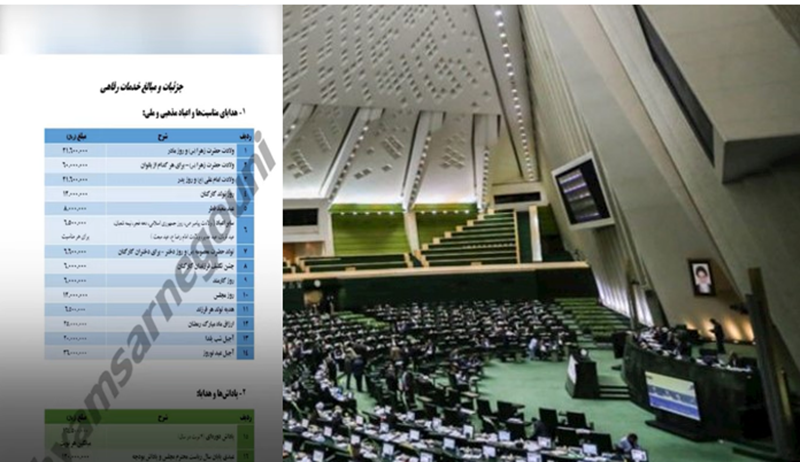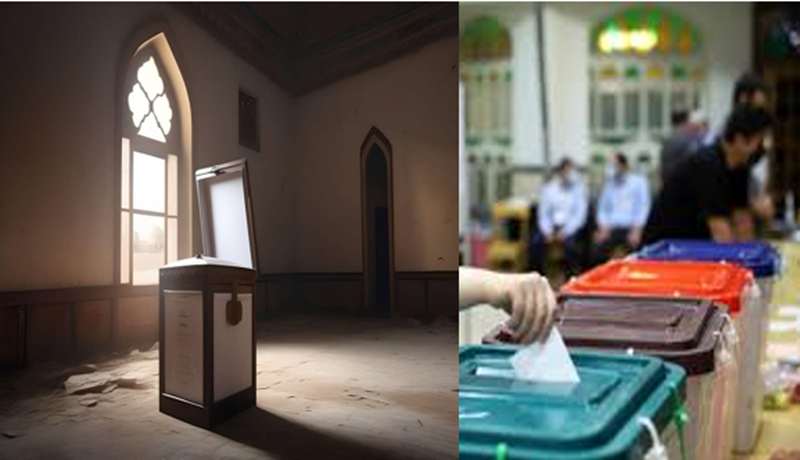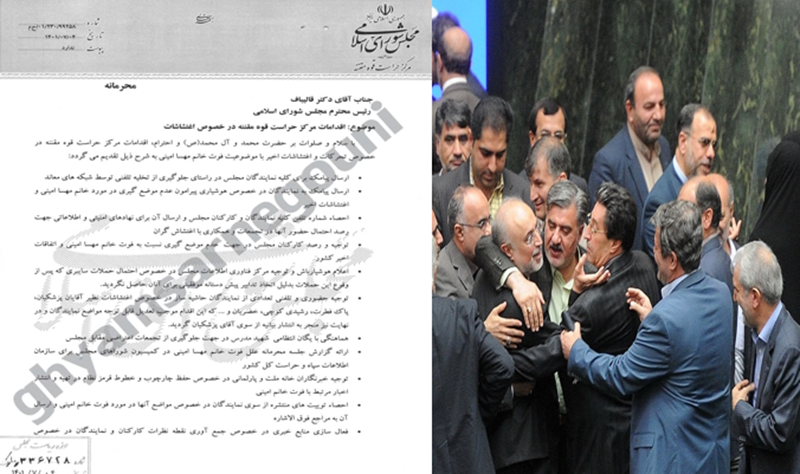

Through its Telegram channel, the group announced it had seized control over numerous digital assets of the Islamic Consultative Assembly (Majlis), including the Parliament’s news agency and library websites, document repositories, and over 600 servers.
This cyber intrusion unearthed documents revealing that some Majlis representatives receive hefty monthly salaries ranging between 200 to 250 million tomans, with additional bonuses during religious and national festivities such as Nowruz (the Persian New Year) and Yalda Night (the winter solstice celebration), among others. These revelations have dominated both domestic and international Persian-language media, spotlighting the stark contrast between the legislators’ lavish compensations and the general populace’s economic struggles.

Despite this, Ruydad 24, a state-run outlet, confirmed the accuracy of the IBAN numbers listed for parliament members, acknowledging that the disclosed salaries and benefits closely matched the hackers’ claims. This verification has intensified public scrutiny over the disparity between the parliamentarians’ lifestyles and the hardships faced by over 60 percent of Iranians living in poverty.
The documents detailed extravagant expenditures on personal luxuries by Majlis members, such as snacks for Nowruz and Yalda celebrations, expenses for family occasions, and leisure activities all funded by the national budget.

The public outcry has been significant, with many Iranians, including those traditionally supportive of the clerical regime, voicing their dismay on social media platforms. State television attempted to quell the dissent by showcasing “ordinary citizens” criticizing the disclosed financial practices.
Nonetheless, the exposé has undoubtedly exacerbated the prevailing distrust towards the regime, highlighting the systemic inequality and the ruling elite’s indifference to the populace’s suffering.

This incident not only sheds light on the opulent lifestyles of its parliament members but also fuels the flames of dissent in a society long burdened by oppression and deprivation, casting a shadow over the legitimacy and integrity of the forthcoming electoral process.

MEK Iran (follow us on Twitter and Facebook), Maryam Rajavi’s on her site, Twitter & Facebook, NCRI (Twitter & Facebook), and People’s Mojahedin Organization of Iran – MEK IRAN – YouTu







